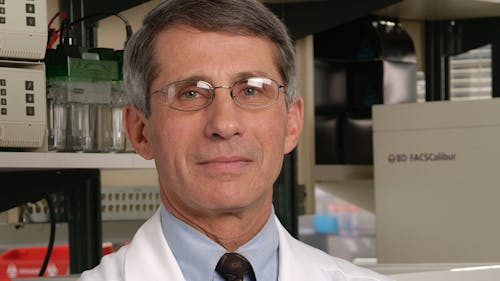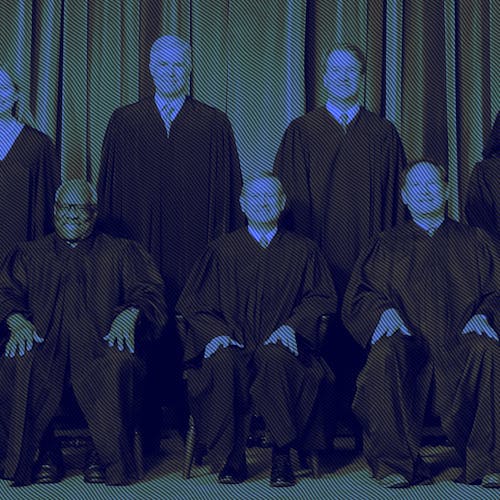COMMENTARY: Compassionate use of stem cell therapy to treat severe COVID-19 could save lives now

Commentary
COVID-19 has predominated international news as it continues to spread rapidly, ignite widespread health concerns, feed panic and disrupt economies around the world.
COVID-19 is related to Middle East respiratory syndrome (MERS) and severe acute respiratory syndrome (SARS), which have sparked health crises of their own in past decades. Although no effective treatment or vaccine exists yet, initiatives around the world are underway to prevent the spread of COVID-19.
But there is no clarity regarding when effective treatments will be available to prevent new infections and to slow progression of COVID-19 to pneumonia and life-threatening respiratory complications. Coronaviruses can be deadly, in large part because they cause “cytokine storms.”
These storms result from imbalances between pro-inflammatory and anti-inflammatory proteins called cytokines, which can cause extreme inflammation and respiratory complications. Respiratory distress kills hundreds of thousands of people each year worldwide, and hundreds of clinical trials are testing drugs to treat it.
Recently, the U.S. company Athersys, Inc. reported on a clinical trial that a high dose of its stem cell product, MultiStem, yielded positive outcomes for patients with respiratory distress by reducing mortality, dependence on ventilators and time spent in intensive care units. These results are currently unpublished. No stem cell product has been approved so far for clinical use in patients with respiratory distress.
Stem cells are being used to treat inflammatory diseases and cytokine storms. The Australian company Mesoblast Ltd. has a stem cell product, Remestemcel-L, that is effective at moderate doses in treating advanced cases of respiratory distress in graft rejection after other therapies have failed. Like graft rejection, coronaviruses can lead to life-threatening cytokine storms. The efficacy of Remestemcel-L in such conditions suggests that it will also be effective in treating respiratory distress in COVID-19 but new trials are needed to verify that.
Remestemcel-L is already approved for clinical use in graft rejection disease in Japan and is pending in United States approval for this disease. Mesoblast Ltd. announced plans to begin clinical trials with Remestemcel-L to mitigate respiratory distress in COVID-19 patients. Remestemcel-L is reported to be safe in all clinical trials. Given that Japanese regulations to develop stem cell products promote accelerated approval of safe stem cell therapies, Remestemcel-L should now be considered as a compassionate treatment for severe COVID-19.
Clinical trials in China are already testing the efficacy of similar stem cell therapies for COVID-19. A recent clinical trial including seven COVID-19 patients showed that a stem cell product improved patient outcomes and rebalanced cytokines to more normal levels. Four new clinical trials planned for COVID-19 in China are designed to test similar types of stem cells derived from umbilical cord blood, but their cells are not well described.
But the intravenous doses in these trials are only approximately one quarter of the effective Remestemcel-L dose. Such low doses have been reported to be ineffective in past trials. Therefore, there is concern that the doses in these ongoing trials may be too low to be effective in COVID-19 patients.
Stockpiles of validated mesenchymal stem cells are probably available now at several organizations, including Mesoblast Ltd. and Athersys, Inc. to treat patients. That being said, a recent Rutgers article suggests that high intravenous doses like those used by Athersys, Inc. may be less effective than more moderate ones used by Mesoblast Ltd. which have gained approval. Determining optimal doses by testing a range for efficacy is likely to improve success in meeting outcomes in clinical trials needed for FDA approval.
Other therapies are being pursued urgently for COVID-19, but they are months or years away from approval. Dr. Anthony Fauci, from the National Institute of Allergy and Infectious Diseases, said, “in order to get a vaccine that's practically deployable for people to use, it's going to be at least a year to a year and a half at best.”
Gilead Sciences Inc. has just launched a Phase 3 clinical trial to evaluate the safety and antiviral efficacy of the small drug Remdesivir, which is effective against coronaviruses in monkeys. Results of clinical trials testing Remdesivir in patients with moderate COVID-19 are expected this May. Repurposing of antiviral HIV drugs is also being investigated.
Given the safety of the aforementioned stem cell products, companies should request permission from regulatory agencies for compassionate treatment of respiratory distress in severe COVID-19. At the very least, such discussions should include physicians to make them aware of potential therapies whether they are approved.
Federal funds should be allocated immediately to test these promising therapies in COVID-19.
Dr. Martin Grumet is the co-founder of the Rutgers Stem Cell Research Center and a professor at Rutgers University. He has a Bachelor of Science degree in physics from the Cooper Union and a doctorate in biophysics from The Johns Hopkins University.
*Columns, cartoons and letters do not necessarily reflect the views of the Targum Publishing Company or its staff.
YOUR VOICE | The Daily Targum welcomes submissions from all readers. Due to space limitations in our print newspaper, letters to the editor must not exceed 900 words. Guest columns and commentaries must be between 700 and 900 words. All authors must include their name, phone number, class year and college affiliation or department to be considered for publication. Please submit via email to [email protected] by 4 p.m. to be considered for the following day’s publication. Columns, cartoons and letters do not necessarily reflect the views of the Targum Publishing Company or its staff.



